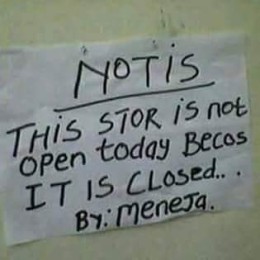 Blockchain experts at global technology consultancy DataArt say that there is a shift in the approaches of larger businesses to the blockchain, with many looking to invest in the technology’s potential, and an uptick in enterprise clients’ R&D and Proof of Concept (PoC) projects.
Blockchain experts at global technology consultancy DataArt say that there is a shift in the approaches of larger businesses to the blockchain, with many looking to invest in the technology’s potential, and an uptick in enterprise clients’ R&D and Proof of Concept (PoC) projects.
According to a DataArt report, these companies are attempting to apply the concepts inspired by blockchain to re-imagine complex, costly and inefficient business processes.
Businesses and IT are attracted to the potential offered by distributed ledger technologies (DLT) to combine multiple concepts and capabilities in a single solution. These technologies enable a fresh perspective on the accepted business processes, with a potential to make them simpler, more transparent, and less resource consuming, resulting in greater business agility, the report said.
Leading platforms and consortia such as Corda, Hyperledger or Ethereum have made significant progress this year in addressing the issues of privacy, performance, and other early-stage challenges. These platforms now combine legal prose along with the code.
Looking toward 2019, DataArt’s report said that leaders across industries taking the technology more seriously, and predict the following:
“We will see more projects apply blockchain to processes that are not directly related to payments or cryptocurrencies. For example, in the insurance industry, we expect to see a surge in R&D and implementations focused on the exploration of permissioned blockchains and applications of smart contracts that target inefficiencies and delays in business flows related to checks, controls, and reconciliation, “the report said.
Blockchain technology will be combined with machine learning capabilities, making it possible to develop sophisticated decisions (e.g. insurance approvals) automatically. Use cases that lend themselves well to this blockchain-driven innovation include contract placements, claims assessments, trigger-based invoicing, technical accounting, and settlements.
The report said that new solutions in financial services that adopt smart contract principles for data management and sharing were expected especially in areas where the data has been previously locked in PDF documents, such as financial statements or loan contracts.
“We expect to see platform solutions from the bigger players and communities such as B3i (Business Insurance Industry Initiative). Their activity could have a long-lasting effect on the industry standards and the ways businesses operate,” it said.
Blockchain-based identity management will be on the rise in 2019. Open source communities will increasingly play an important role in helping enterprises build new technical components and solutions applicable across entire industries, such as Identity Management, smart contracts libraries, and data sharing.
Blockchain implementation across industries still has a way to go, but 2019 is set to be the turning point. No longer is blockchain a mysterious and overhyped technology trialled only by the few. It is a technology embraced by industry leaders who are committed to its potential to transform businesses and industries far beyond its modest cryptocurrency and bitcoin origins.
 Computacenter warned that a slowdown in the infrastructure managed services market could hamper future growth.
Computacenter warned that a slowdown in the infrastructure managed services market could hamper future growth.


















